During the previous few months of working with Microsoft Dynamics CRM 2013, there is one issue I’ve seen time and time again. It has been spotted in the Contact, Account, Lead, and Opportunity forms, as well as the forms of several custom entities. It has occurred on multiple machines, with several users, in both online and on-premises instances of Dynamics CRM 2013, and in several different versions of Firefox, Chrome, and Internet Explorer.
The issue is the following pop-up message:
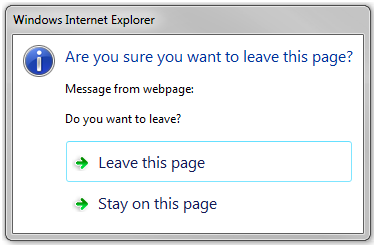
Getting this message would typically occur from attempting to navigate away from a form with unsaved changes, and thus be helpful to the user; however, in this case the message would appear on new forms when Save was clicked on the form ribbon. Clicking the Stay on this page button on the message closed the message, but did not save the record. Conversely, clicking the Leave this page button would refresh the form, and clear all the fields, but would save the record. Navigating to the list view of the entity and refreshing the page showed the new record in the list.
The following solution was reached by working with Microsoft’s Support staff, and I’ve had no reports of the issue recurring in any instance.
1. In Internet Explorer, click the Tools icon and select Internet Options.
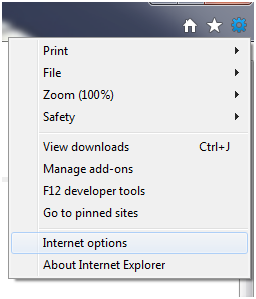
2. From there, select the Security tab and click the Sites button in the Trusted Sites section. Add “*.dynamics.com” and “*.live.com” and “*.microsoft.com” to the trusted sites list, then click Close.
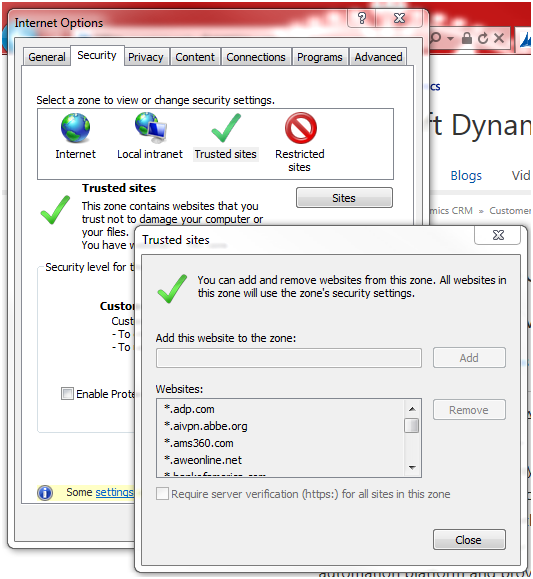
3. Next you’ll need to clear your browsing history. In Internet Explorer, click the Tools icon and select Internet Options. In the General tab, click the Delete… button in the Browsing History section.
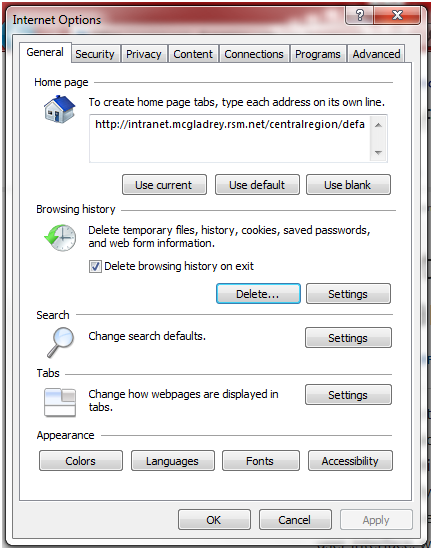
4. Check the boxes next to Temporary Internet Files and Cookies. The rest of the boxes should be unchecked. Click Delete.
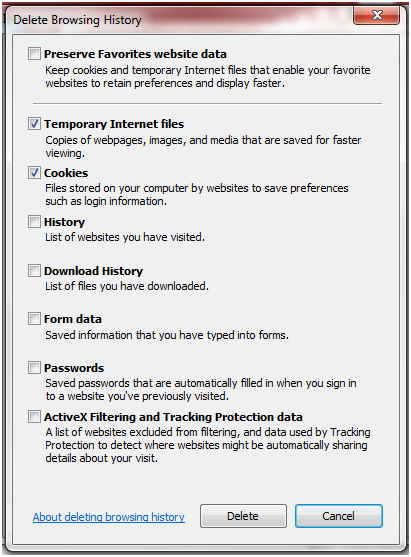
5. Click the Settings button in the Browsing History section and click View Files.
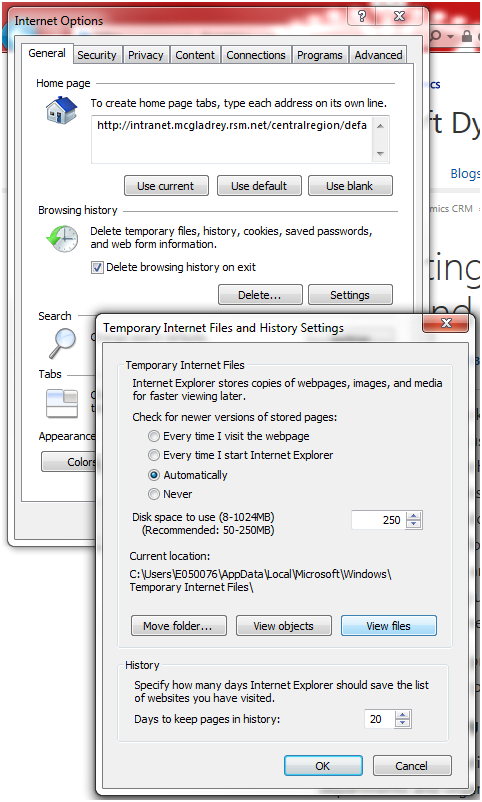
6. Delete all files in the folder by hitting Ctrl + A to select all, and clicking File on the ribbon, and selecting Delete from the list.
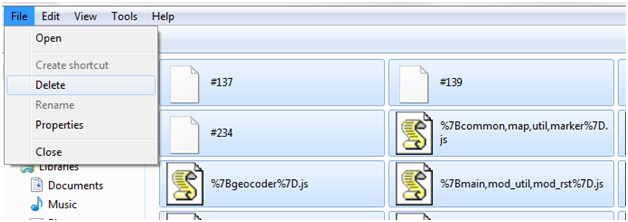
7. To clear all temporary files off the system, go to the Start Menu and select Run…
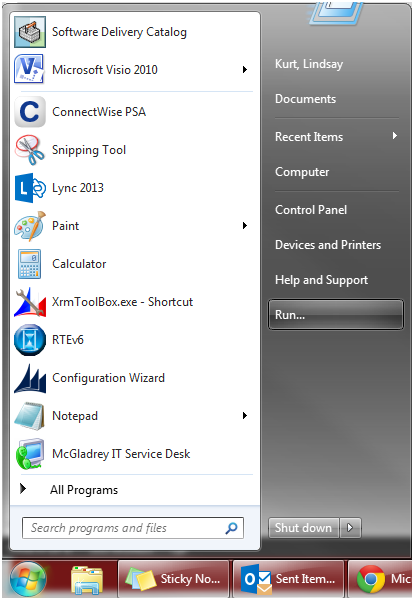
8. Type “%temp%” and click OK.
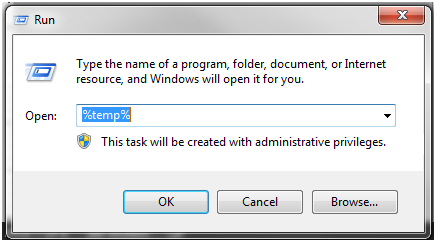
9. A Temp folder will open. Select and delete all files. A pop-up will ask if you are sure you want to move the items to the Recycle Bin. Click Yes. You may get a pop-up asking if you want to permanently delete a certain file or folder. Check the Do this for all current items box at the bottom, then click Skip.
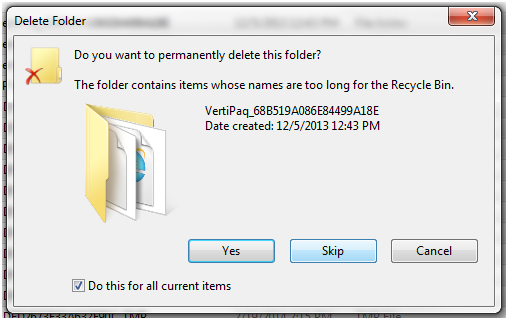
10. Repeat Steps 7 – 9, replacing “prefetch” for “%temp%” in Step 8.
11. In the Run program, type “control keymgr.dll” and click OK.
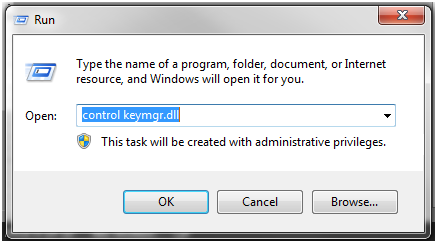
12. A Credential Manager window will open. Remove all the Generic Credentials regarding Dynamics CRM.
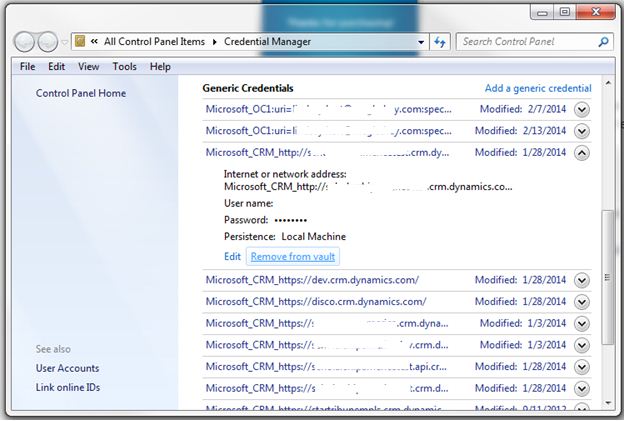
Check the system time it should be updated with the server time (you can compare the time on the web and verify whether it is correct or not).
If you are having this issues or other issues with Microsoft Dynamics CRM 2013, our Microsoft Dynamics CRM Specialists offers services from installation and support to configuration and optimization. To learn more, please contact our professionals at crm@mcgladrey.com.
Read more articles on the new release of Microsoft Dynamics CRM 2013.
By: Lindsay Kurt – Minnesota Microsoft Dynamics CRM partner

 RSMUS.com
RSMUS.com